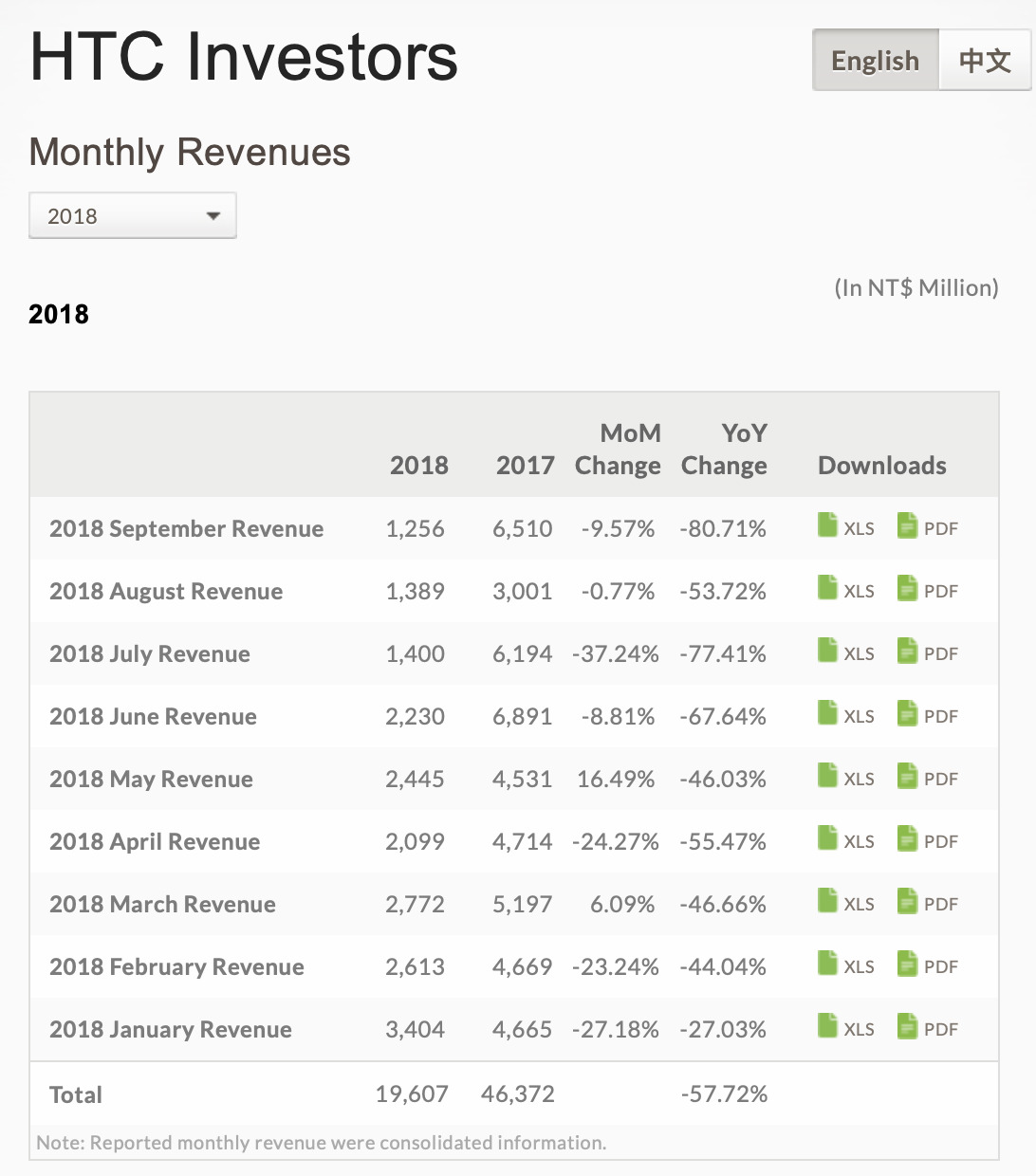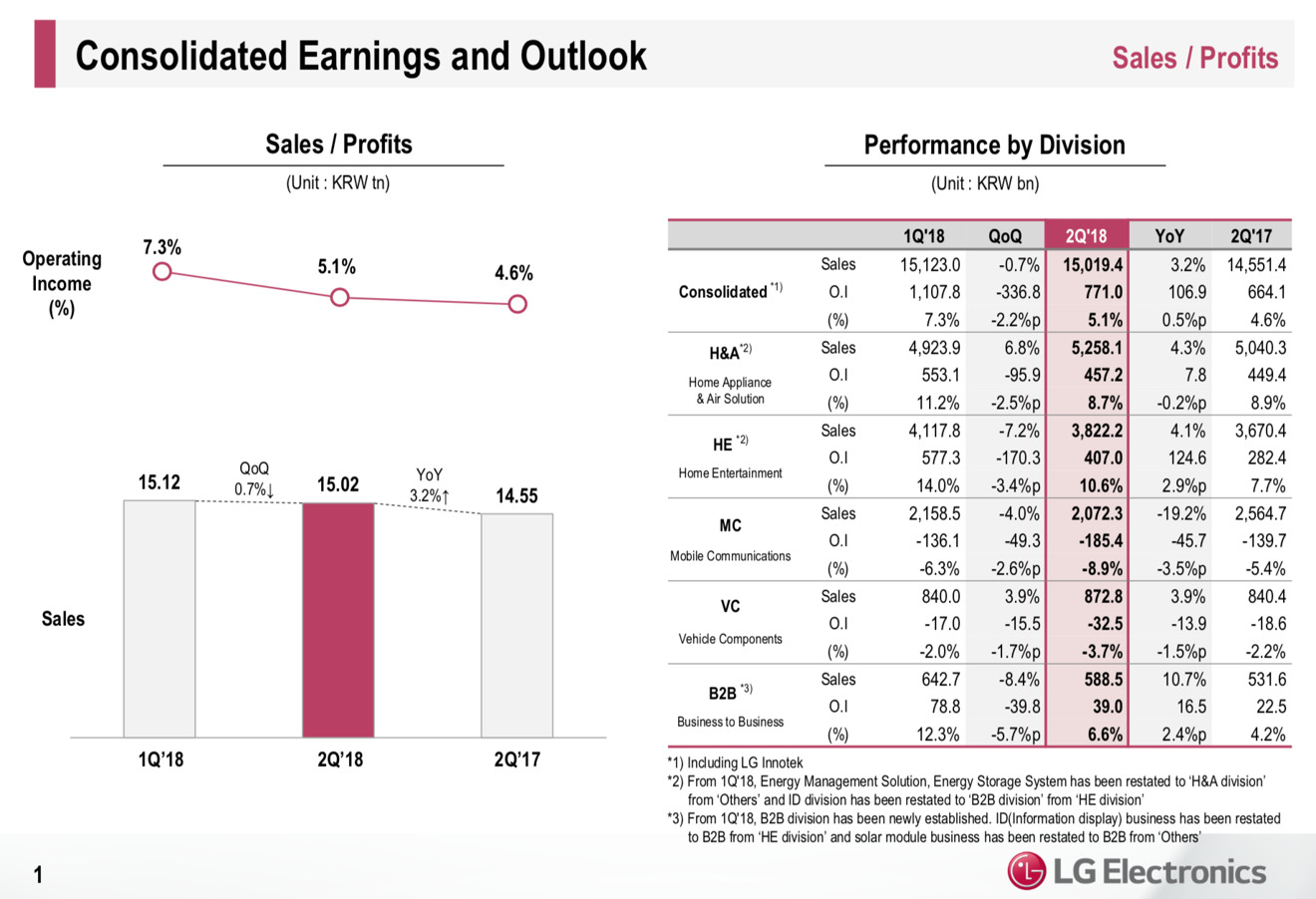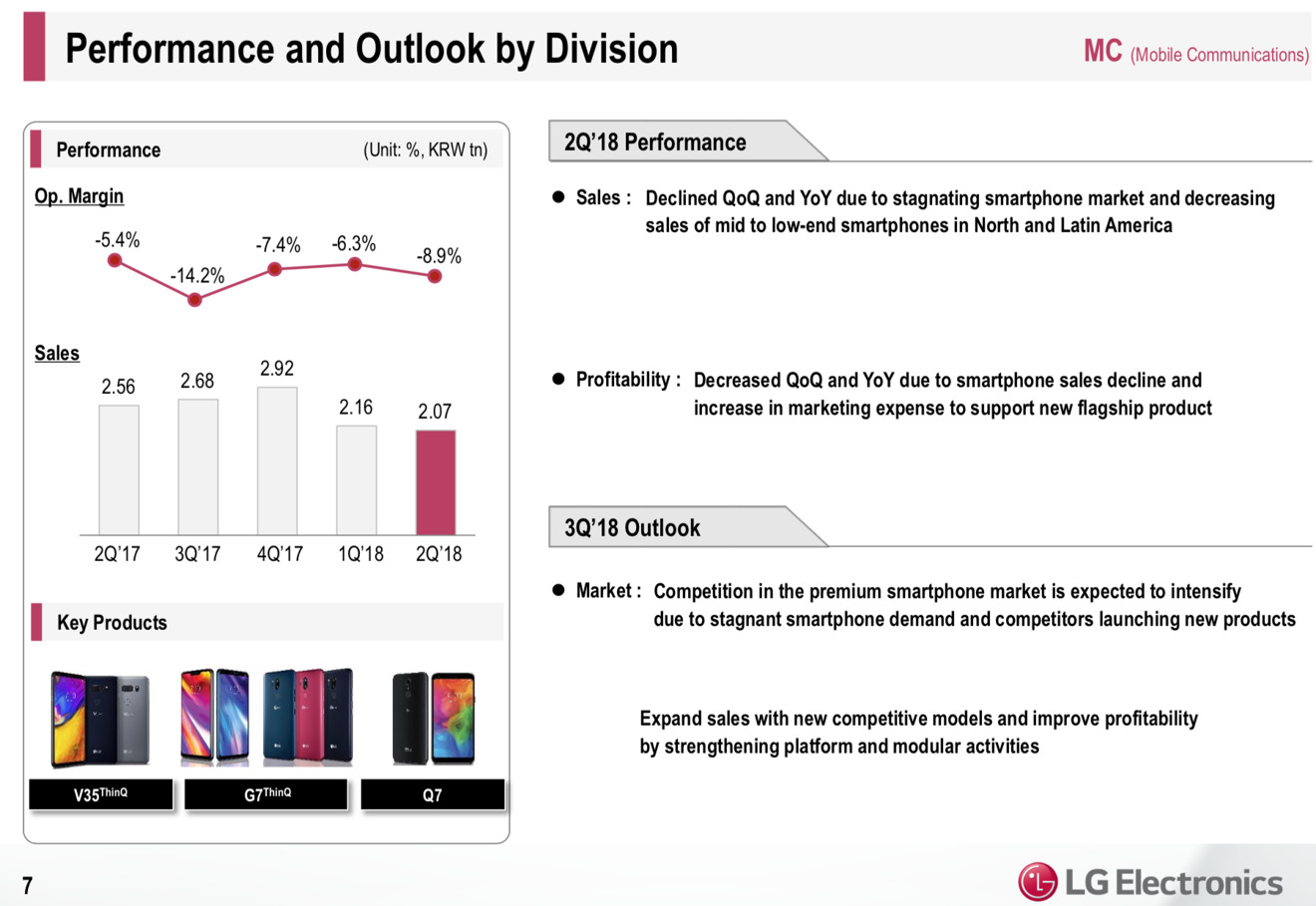Two years of Google selling "Pixel" branded versions of HTC and LG handsets have done nothing to arrest the slide that both Android licensees are seeing in their mobile sales. Will more exclusive machine learning and artificial intelligence features on Pixel 3 models do anything to change that?
HTC gets pixelated
Ten years ago, Google offered Taiwan's HTC a lifeline of sorts in the form of an Android partnership for the original HTC Dream, followed by Nexus One. However, the former Windows Mobile contract manufacturer hasn't fared so well since. Google's last two years of HTC-built Pixels have done nothing to help the struggling company.
After its initial work with HTC, Google moved on to partner with Samsung, then LG and Motorola. HTC's next collaboration on Google's Nexus 9 tablet was a bust. Selected by Google to build the Pixel and Pixel 2, HTC's sales have slipped faster and faster down a slope towards oblivion.
HTC reports revenues monthly, and the story they outline is one of dramatic failure. Across 2018, HTC's revenues have increasingly plummeted.
The seasonal boost in September 2017 didn't occur in 2018 at all, with the company chalking up an 80 percent decrease in HTC's revenues. Overall, HTC's revenues in 2018 have collapsed by 57.7 percent.
That's in comparison to 2017, when HTC was already experiencing problems with selling its phones. Rather than helping, another generation of Pixel 2 ransacked HTC's 9 months of revenues from 46,372 NT (nearly $1.5 billion) to a mere 19,507 NT ($600 million). That's even before looking at HTC's profits, which are a function of its volumes of sales.
LG gets XL-pixelated
Google's three generations of larger Pixel XL phones are built by LG. Those sales aren't helping to stabilize things for LG, which has been actively losing money on its Mobile Communications operations.
While the rest of LG's consolidated operations are profitable, its MC group that builds Pixel XL as well as LG's own handsets reported a year over year decline in revenues of 19.2 percent, and drop in operating income over twice as large: down 45.7 percent over the year-ago second-quarter.
LG noted its MC unit sales "declined QoQ and YoY due to stagnating smartphone market and decreasing sales of mid to low-end smartphones in North and Latin America," and blamed its collapse in profits on "decreased QoQ and YoY due to smartphone sales decline and increase in marketing expense to support new flagship product."
Looking ahead to Q3, during which Apple launched its new iPhone XS and iPhone XR models, LG noted, "competition in the premium smartphone market is expected to intensify due to stagnant smartphone demand and competitors launching new products."
Google triples down on its failed Pixel strategy
Google's Nexus and Pixel re-brandings of Android licensee hardware were supposed to be a combination of a strategy to build a base of users dependent upon Google's services and/or an object lesson for Android licensees to show them how to successfully build desirable, successful Android phones. By either metric, Google's Nexus and Pixel have failed disastrously over the last ten years.
Why did the last two generations of Pixel phones perform so badly? Google pursued a software-first strategy that promoted exclusive, proprietary camera features that other Android phones didn't have. But, there was little else offered to make Pixel competitive with other Android devices that cost far less than Google was asking.
Nothing about Pixel or Pixel 2 really offered anything to aggressively compete with last year's iPhone, let alone the newest iPhones Apple released at the same time.
In dramatic contrast to Apple's supply chain expertise, Google's Pixel is effectively helping to starve its own supply chain to death. Yet while sources from Bloomberg to the Wall Street Journal and Japan's Nikkei desperately search for potential problems among the often-false rumors surrounding Apple's tentacles of production, there's been nothing but glowing admiration for Google's decade of ineffectual stabs at building a hardware business.
There's not even any pointed criticism of Google's round-robin strategy of throwing resources at one Android licensee, then yanking support to work with another. When Apple switches suppliers, there's full, detailed coverage of the poor plight of the company that loses its business. Apple is even held to blame for App Store developers who can't find success.
Yet, nobody in Android-land blames Google for the overall lack of commercial returns from Android. Among hardware partners, Android has been especially problematic.
The Lethal Google Phone
Google's devastating impact on HTC and LG is particularly notable because Pixel and Pixel 2 were supposed to be evidence that Google could produce an iPhone-priced, premium Android phone — if only it could bypass bumbling, adware-infatuated Android licensees. Yet after Google took the reins, HTC and LG went from having problems to suffering full-blown crises.
Google's supposedly stellar "brand value," and its tenacious grip on web advertising didn't help one iota to push a significant number of buyers to pay a premium for Pixel phones (or its Pixel-branded Android tablet, which ended up canceled entirely).
This wasn't a unique event. Google previously destroyed any real hope for Nest by taking it over and seeking to align it with its true vision of Android. And before that, Google's takeover of Motorola turned out massive flops like Moto X, which not only failed to make money but actually incinerated $700 million across just the last six months of its production.
The tech media appeared completely blind to any possibility that Google might not be widely successful in hardware, despite its foundering for years in failed attempts to produce phones, tablets, TV boxes and other experiments under the Nexus, Q, Chromebook, and Pixel brands. Given Google's history before the phone, it should have been easy to predict that the company's best-case scenario might be facilitating the production of cheap phones for the low-end, mass market, not a premium device to rival Apple's iPhone.
But just months before Google gave up and sold off the one-time American icon to a Chinese company, Steven Levy wrote the official company line in an article for Wired: "Moto X is the first in a series of hardware products that Google hopes will supercharge the mother company's software and services."
After Google's five generations of Nexus, two cycles of Moto X and now its third attempt with Pixel, it's getting increasingly ridiculous to suggest that Google's well-established failure in designing, producing and marketing hardware is going to be reversed by new software update plans, new software technology, or a clever new machine learning software feature.
 Daniel Eran Dilger
Daniel Eran Dilger









-m.jpg)






 Christine McKee
Christine McKee
 Marko Zivkovic
Marko Zivkovic
 Mike Wuerthele
Mike Wuerthele

 Amber Neely
Amber Neely
 Sponsored Content
Sponsored Content
 Wesley Hilliard
Wesley Hilliard










55 Comments
I think the writer's main story premise may be wrong, making the entire article suspect.
Neither LG nor HTC built the Pixel 3/3XL AFAICT. Google used Foxconn according to industry sources, as consistently reported since back in May, so all the talk around LG and HTC's smartphone business is nice and all but really has little to nothing to do with this years Pixel 3's.
HTC may have still have had some early engineering work invested, and probably did, since Google didn't take control of the team behind it until early this year, perhaps in January? I'd have to check the news. By generation 4 next year Google will be out of excuses, it's all on them whether they can demonstrate any design prowess or not. But HTC and LG building this year's Pixels as assumed in the article? I don't think so. The two designs being so very similar should have been an obvious red flag that two different manufacturers hadn't designed and built them. Just looks at last year's models compared to this year.
IMO Alphabet has picked a bad time to jump into the business with both feet, but whatever. Smartphones have become a bit boring to be honest, not much flashiness and oooh features being seen the past year or so from anyone. What there is seems more related to AI/computational enhancements for things like phone calls, photos, and smart device control. If Alphabet can actually pull an oooh-and-aahh phone out of its hat next year it will come as a stunner, but I'm not holding my breath. IMO smartphones are stagnating more than stunning us.
This article is looking at Google through an Apple lens rather than a Google one. Pixel is just one element in Google's mobile strategy. They make more money by getting their services into the hands of more people - whether they are using a Pixel, a Galaxy, an iPhone, a desktop or a home device. The Pixel phones are ugly as anything on the market but they focus on bringing the standard of camera right up and providing a platform to showcase their services. If this drives all of their Android partners to work harder then Google wins. Apple makes money from hardware sales, Google makes it from eyeballs and ears. Also, I don't think you can say that Google has failed in hardware. Chromecasts, Nest, and Home devices are all incredibly successful. Google's business model doesn't require it to make a profit on the hardware, it's a channel for its services and advertising.
The issue is that the Google Lens of the article has been collapsing for several years! Intelligence of edge devices and shifting power to mesh and edge networks that bypass the Google sphere is emerging from both Apple and Qualcomm. The convergence of communications, distributed discrete computing and now bidirectional ATSC 3 broadcast challenge Google’s model on multiple levels.
LG is positioned as a provider of consumer products to benefit from a more intelligent edge computing environment. HTC could also benefit, but that remains to be seen if they can pivot. Qualcomm is clearly developing in that direction along with many new entrants in the silicon space. George Gilder has correctly predicted to decline of Google and its monolithic model, but it also impacts Amazon and to a lesser degree Apple. The future will be interesting, but filled with human innovation not machines controlling our lives.